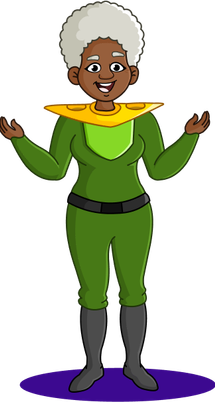


 119 Learners
119 LearnersLast updated on May 28th, 2025

Cube of 1.3

When a number is multiplied by itself thrice, the resultant number is called the cube of a number. Cubing is used when comparing sizes of objects or things with cubic measurements. In this topic, we shall learn about cubes of 1.3.
Cube of 1.3
A cube number is a value obtained by raising a number to the power of 3, or by multiplying the number by itself three times.
When you cube a positive number, the result is always positive.
When you cube a negative number, the result is always negative.
This is because a negative number by itself three times results in a negative number.
The cube of 1.3 can be written as 1.3³, which is the exponential form, or it can also be written in arithmetic form as 1.3 × 1.3 × 1.3.

How to Calculate the Value of Cube of 1.3
In order to check whether a number is a cube number or not, we can use the following three methods, such as multiplication method, a factor formula (a³), or by using a calculator. These three methods will help kids to cube the numbers faster and easier without feeling confused or stuck while evaluating the answers.
- By Multiplication Method
- Using a Formula (a3)
- Using a Calculator
By Multiplication Method
The multiplication method is a process in mathematics used to find the product of two numbers or quantities by combining them through repeated addition. It is a fundamental operation that forms the basis for more complex mathematical concepts.
Step 1: Write down the cube of the given number. 1.3³ = 1.3 × 1.3 × 1.3
Step 2: You get approximately 2.197 as the answer.
Hence, the cube of 1.3 is approximately 2.197.
Using a Formula (a³)
While there isn't a binomial formula specifically for this simple calculation, you can still manually calculate it step-by-step.
Step 1: Use a simple calculation method since 1.3 is a small number. 1.3 × 1.3 = 1.69
Step 2: Multiply the result by 1.3 again. 1.69 × 1.3 = 2.197
Step 3: Hence, the cube of 1.3 is approximately 2.197.
Using a Calculator
To find the cube of 1.3 using a calculator, input the number 1.3 and use the cube function (if available) or multiply 1.3 × 1.3 × 1.3. This operation calculates the value of 1.3³, resulting in approximately 2.197. It’s a quick way to determine the cube without manual computation.
Step 1: Ensure the calculator is functioning properly.
Step 2: Enter 1.3.
Step 3: If the calculator has a cube function, press it to calculate 1.3³.
Step 4: If there is no cube function on the calculator, simply multiply 1.3 three times manually.
Step 5: The calculator will display approximately 2.197.
Tips and Tricks for the Cube of 1.3
- The cube of any positive number is always positive, while the cube of any negative number is always negative.
- The cube of a number slightly greater than 1 will yield a number slightly greater than the original number.
- When working with decimals, ensure accuracy by carefully aligning decimal points during multiplication.

Common Mistakes to Avoid When Calculating the Cube of 1.3
There are some typical errors that kids might make during the process of cubing a number. Let us take a look at five of the major mistakes that kids might make:

Solved Examples on Cube of 1.3

Problem 1
What is the cube and cube root of 1.3?

The cube of 1.3 is approximately 2.197, and the cube root of 1.3 is approximately 1.091.
Explanation
First, let’s find the cube of 1.3.
We know that the cube of a number is calculated as x³ = y,
where x is the given number and y is the cubed value of that number.
So, we get 1.3³ = 2.197. Next, we must find the cube root of 1.3.
We know that the cube root of a number 'x', is calculated as ∛x = y,
where 'x' is the given number and y is the cube root value of the number.
So, we get ∛1.3 = 1.091.
Hence the cube of 1.3 is approximately 2.197, and the cube root of 1.3 is approximately 1.091.

Problem 2
If the side length of a cube is 1.3 cm, what is the volume?

The volume is approximately 2.197 cm³.
Explanation
Use the volume formula for a cube V = Side³.
Substitute 1.3 for the side length: V = 1.3³ = 2.197 cm³.

Problem 3
How much larger is 1.3³ than 1.2³?

1.3³ – 1.2³ = 0.728.
Explanation
First, find the cube of 1.3, which is approximately 2.197.
Next, find the cube of 1.2, which is 1.728.
Now, find the difference between them using the subtraction method. 2.197 – 1.728 = 0.469.
Therefore, 1.3³ is 0.469 larger than 1.2³.

Problem 4
If a cube with a side length of 1.3 cm is compared to a cube with a side length of 0.5 cm, how much larger is the volume of the larger cube?

The volume of the cube with a side length of 1.3 cm is approximately 2.197 cm³, which is larger.
Explanation
To find its volume, multiply the side length by itself three times (since it’s a 3-dimensional object).
Cubing 1.3 means multiplying 1.3 by itself three times: 1.3 × 1.3 = 1.69, and then 1.69 × 1.3 = 2.197.
The unit of volume is cubic centimeters (cm³), because we are calculating the space inside the cube.
Therefore, the volume of the cube with a side length of 1.3 cm is approximately 2.197 cm³.

Problem 5
Estimate the cube of 1.4 using the cube of 1.3.

The cube of 1.4 is slightly larger than the cube of 1.3, which is approximately 2.744.
Explanation
First, identify the cube of 1.3, which is approximately 2.197.
Since 1.4 is slightly larger than 1.3, the cube of 1.4 will be slightly larger than that of 1.3.
The cube of 1.4 is approximately 2.744 because the difference between 1.4 and 1.3 is small.
So, we can approximate the value by calculating 1.4 × 1.4 × 1.4 = 2.744.


FAQs on Cube of 1.3
1.What are the perfect cubes up to 2?
2.How do you calculate 1.3³?
3.What is the meaning of 1.3³?
4.What is the cube root of 1.3?
5.Is 1.3 a perfect cube?
6.How does learning Algebra help students in United Kingdom make better decisions in daily life?
7.How can cultural or local activities in United Kingdom support learning Algebra topics such as Cube of 1.3?
8.How do technology and digital tools in United Kingdom support learning Algebra and Cube of 1.3?
9.Does learning Algebra support future career opportunities for students in United Kingdom?
Important Glossaries for Cube of 1.3
- Cube of a Number: Multiplying a number by itself three times is called the cube of a number.
- Decimal Multiplication: The process of multiplying numbers that have decimal points, requiring careful alignment of decimals.
- Exponential Form: A way of expressing numbers using a base and an exponent (or power), where the exponent value indicates how many times the base is multiplied by itself. For example, 1.3³ represents 1.3 × 1.3 × 1.3.
- Cube Root: The number that must be multiplied by itself three times to equal a given value. For example, ∛1.3 is the cube root of 1.3.
- Volume of a Cube: The amount of space occupied by a cube, calculated as the side length cubed (Side³).
Explore More algebra
 Previous to Cube of 1.3
Previous to Cube of 1.3
 Next to Cube of 1.3
Next to Cube of 1.3
About BrightChamps in United Kingdom


Jaskaran Singh Saluja
About the Author
Jaskaran Singh Saluja is a math wizard with nearly three years of experience as a math teacher. His expertise is in algebra, so he can make algebra classes interesting by turning tricky equations into simple puzzles.

Fun Fact
: He loves to play the quiz with kids through algebra to make kids love it.



